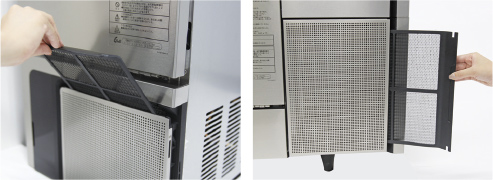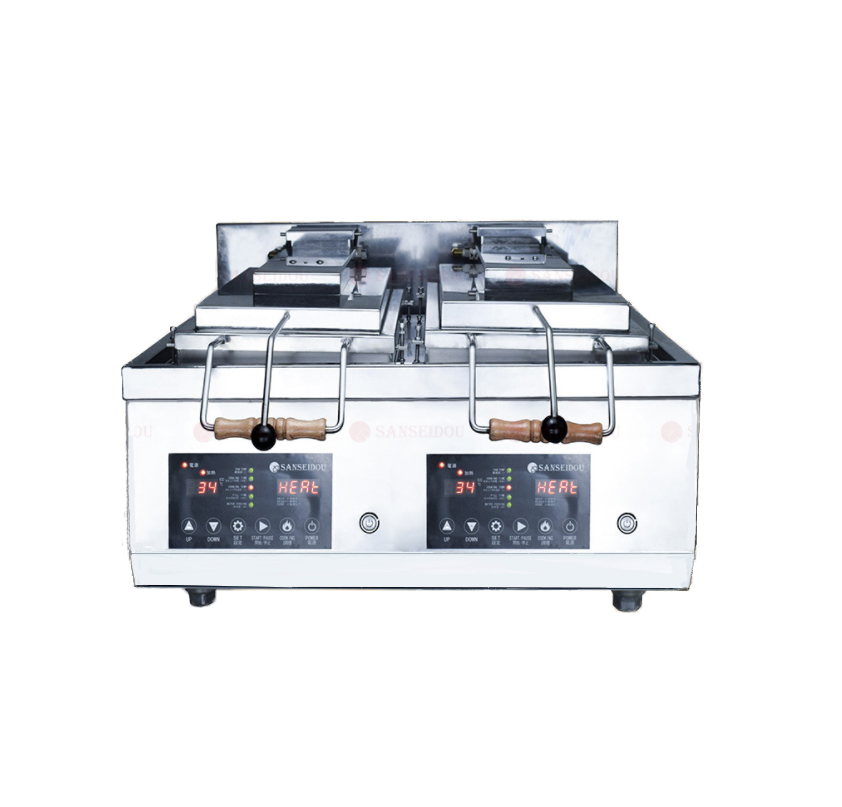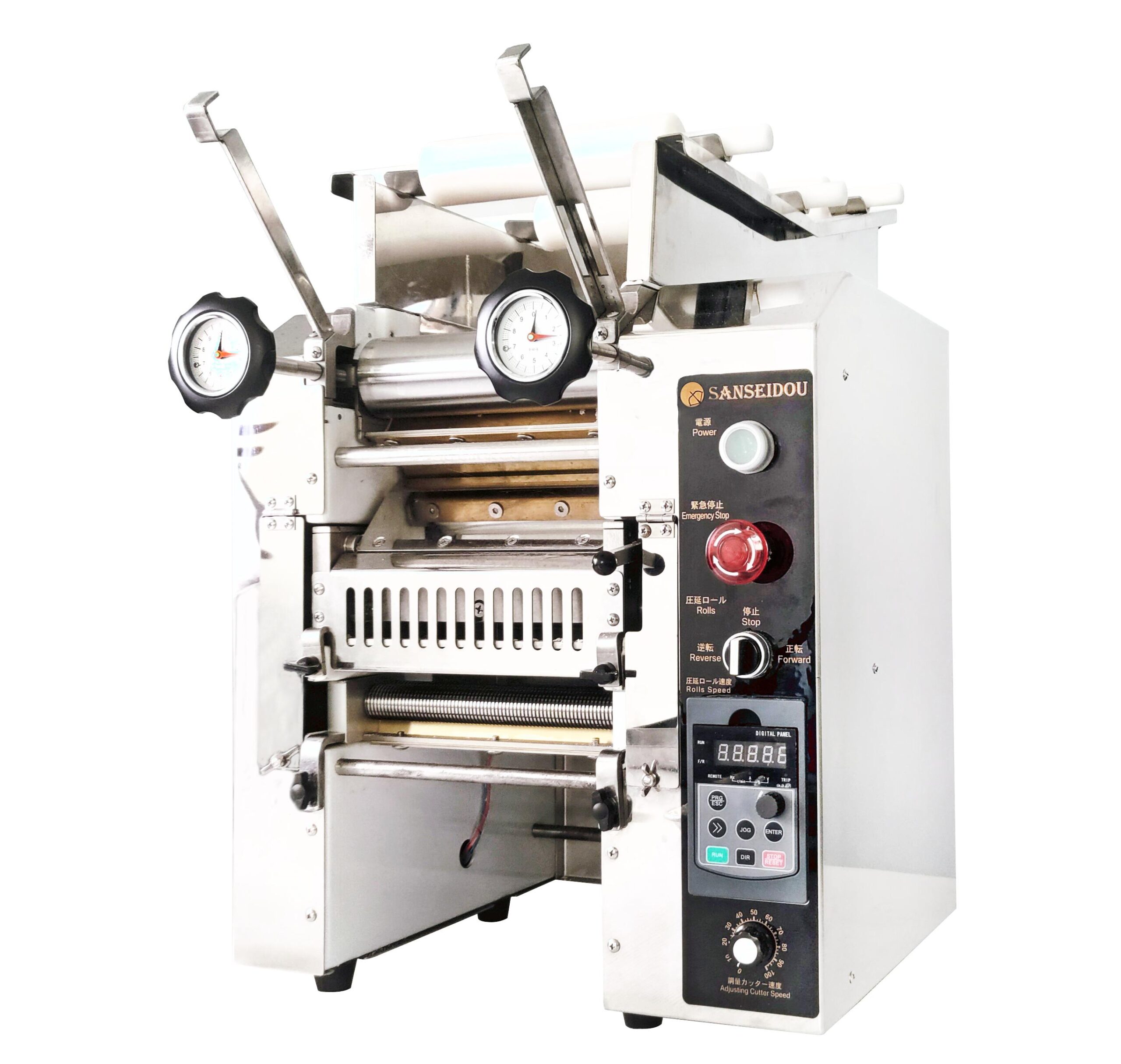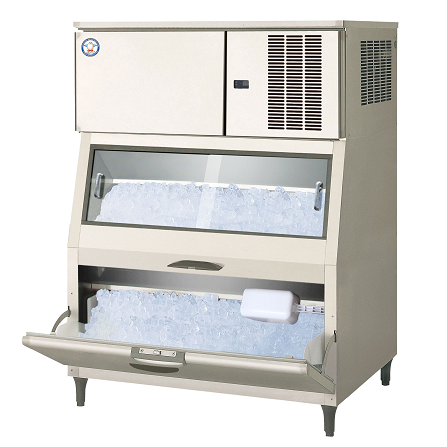- Sanseidou
- Food Processing Equipment
- Cooking Equipment
- Store Advertising Equipment
- Refrigeration Equipment
- Commercial Furniture
- Kitchenware
- Tableware
Ice maker cube ice
Code : FIC-A240KL3ST
Model name:FIC-A240KL3ST
External dimensions:1,080x825x1,450mm
Product weight:142kg
Power Specifications:Three-phase 200V
Refrigerant (refrigerator) :R-448A
remarks:Stack-on type air-cooled
Main features of the new design
1. Door handle

The flat shape blends in with the exterior, and the slope prevents water from dripping into the cabinet from above.
2. Ventilation

Small-diameter punched metal is placed on the panel surface and, in combination with the gaps above, below, left and right, ensures the necessary air intake volume.

3. Capacitor Filter

The filter can be removed without removing the machine room panel, reducing the effort required for cleaning the filter.
ICE CUBES〈Cell-type〉:

HALF ICE CUBES〈Cell-type〉:

This produces highly transparent ice with few impurities.
This is an automatic ice maker that uses a cell system. It produces highly transparent cube ice with few impurities.
It is useful for a variety of purposes, such as for beverages and for keeping things cool.

What makes clear ice?
In a cellular cooling device, water is cooled to approximately -20℃ to -25℃, and as it is blown upwards, it gradually freezes from the outside.
As the water flows within the lattice of the cooling device, the water that does not contain impurities freezes little by little from the outside. By repeating this process, clear ice can be made.

Aluminum cooling unit
Aluminum is used for the cooler. The aluminum material is anodized to improve corrosion resistance. Since it is made entirely of aluminum, no foreign matter can get in.

New water tank for even greater energy savings
The water tank has a residual water structure, and some of the water is stored and recycled for the next ice making, reducing the amount of water discharged and improving water conservation. Furthermore, by retaining the water that has cooled during ice making and using it for the next ice making, the rise in water temperature in the water tank at the beginning of ice making is kept to a minimum, reducing the electrical energy required to lower the water temperature. Energy conservation has been improved.
Furthermore, despite the water storage structure, a mechanism is used to periodically drain all the water, achieving both water conservation and hygiene.







